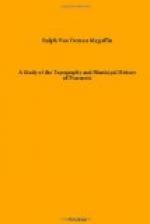[Footnote 168: Livy I, 30, 1.]
[Footnote 169: Cicero, de Leg., II, 2, 5.]
[Footnote 170: Pauly-Wissowa, Real Enc. under “Anicia.”]
[Footnote 171: The old Oscan names in Pompeii, and the Etruscan names on the small grave stones of Caere, C.I.L., X, 3635-3692, are neither so numerous.]
[Footnote 172: Dionysius III, 2.]
[Footnote 173: Polybius VI, 14, 8; Livy XLIII, 2, 10.]
[Footnote 174: Festus, p. 122 (de Ponor): Cives fuissent ut semper rempublicam separatim a populo Romano haberent, and supplemented, l.c., Pauli excerpta, p. 159 (de Ponor): participes—fuerunt omnium rerum—praeterquam de suffragio ferendo, aut magistratu capiendo.]
[Footnote 175: Civitas sine suffragio, quorum civitas universa in civitatem Romanam venit, Livy VIII, 14; IX, 43; Festus, l.c., p. 159.]
[Footnote 176: Paulus, p. 159 (de Ponor): Qui ad civitatem Romanam ita venerunt, ut municipes essent suae cuiusque civitatis et coloniae, ut Tiburtes, Praenestini, etc.]
[Footnote 177: I do not think so. The argument is taken up later on page 73. It is enough to say here that Tusculum was estranged from the Latin League because she was made a municipium (Livy VI, 25-26), and how much less likely that Praeneste would ever have taken such a status.]
[Footnote 178: C. Gracchus in Gellius X, 3.]
[Footnote 179: Tibur had censors in 204 B.C. (Livy XXIX, 15), and later again, C.I.L, I, 1113, 1120 = XIV, 3541, 3685. See also Marquardt, Staatsverwaltung, I, p. 159.]
[Footnote 180: C.I.L, XIV, 171, 172, 2070.]
[Footnote 181: C.I.L., XIV, 2169, 2213, 4195]
[Footnote 182: Cicero, pro Milone, 10, 27; 17, 45; Asconius, in Milonianam, p. 27, l. 15 (Kiessling); C.I.L., XIV, 2097, 2110, 2112, 2121.]
[Footnote 183: C.I.L., XIV, 3941, 3955.]
[Footnote 184: Livy III, 18, 2; VI, 26, 4.]
[Footnote 185: Livy IX, 16, 17; Dio, frag. 36, 24; Pliny XVII, 81. Ammianus Marcellinus XXX, 8, 5; compare Gellius X, 3, 2-4. This does not show, I think, what Dessau (C.I.L., XIV, p. 288) says it does: “quanta fuerit potestas imperatoris Romani in magistratus sociorum,” but shows rather that the Roman dictator took advantage of his power to pay off some of the ancient grudge against the Latins, especially Praeneste. The story of M. Marius at Teanum Sidicinum, and the provisions made at Cales and Ferentinum on that account, as told in Gellius X, 3, 2-3, also show plainly that not constitutional powers but arbitrary ones, are in question. In fact, it was in the year 173 B.C., that the consul L. Postumius Albinus, enraged at a previous cool reception at Praeneste, imposed a burden on the magistrates of the town, which seems to have been held as an arbitrary political precedent. Livy XLII, 1: Ante hunc consulem Nemo umquam sociis in ULLA re oneri aut sumptui fuit.]
[Footnote 186: Praenestinus praetor ... ex subsidiis suos duxerat, Livy IX, 16, 17.]




